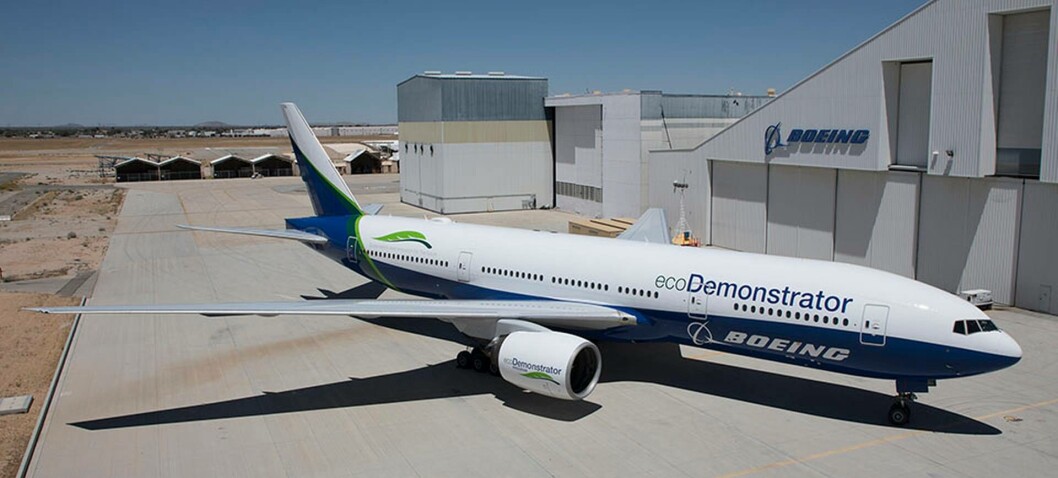VIVAERO

Easier to produce biofuel with new enzyme
The Boeing 777 Freighter which in 2018 became the first commercial aircraft to fly on 100 percent biofuel.
A Brazilian research team has found a bacterial enzyme that could simplify the production of biofuels for airplanes. The enzyme OleTPRN can replace metal-based catalysts.
A new enzyme could open up new avenues to produce renewable hydrocarbon-based fuels for aviation. The Brazilian research team behind the discovery has published their findings in the journal Proceedings of the National Academy of Sciences.
Today it is possible to fly with biofuel in the tank. But there are still problems that need to be solved. Among other things is oxygen harmful to some aircraft parts and engines. In the production of sustainable aviation fuel, oxygen therefore needs to be removed from carbon chains of various kinds in a process called deoxygenation. It is in this process that the new enzyme is beneficial.
The flight will refuel with recycled carbon dioxide: “Mimics photosynthesis”
The new enzyme, called OleTPRN, should be able to be used as a catalyst instead of more traditionally used metal-based catalysts. The enzyme is better than its predecessors because the oxygen can be removed from carbon chains of different lengths and types under milder conditions.
– To bring about the deoxygenation reaction, the metallic catalysts must be applied under harsh conditions. Especially high temperature and high pressure, and they can be harmful to the environment as well as produce technical waste and lead to economic losses, says Letícia Zanphorlin, who led the work in a press release.
The metallic catalysts that are usually used can partly consist of metals such as cobalt, nickel, platinum and palladium. OleTPRN is produced from the bacterium Rothia nasimurium which belongs to the Cytochrome 450 group.
Fuel can be made from sugar cane waste...The study was conducted by researchers at Brazil’s National Biofuels Laboratory (LNBR) at the Center for Energy and Materials Research (CNPEM). The researchers hope to improve the production of sustainable biofuels for both aircraft and shipping.
According to the researchers, Brazil produces 150 million tons waste from sugar cane every year. That kind of waste must be able to be converted into biofuel.
Ny Teknik – startsida
Comments
Post a Comment